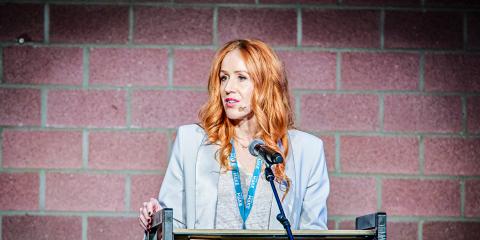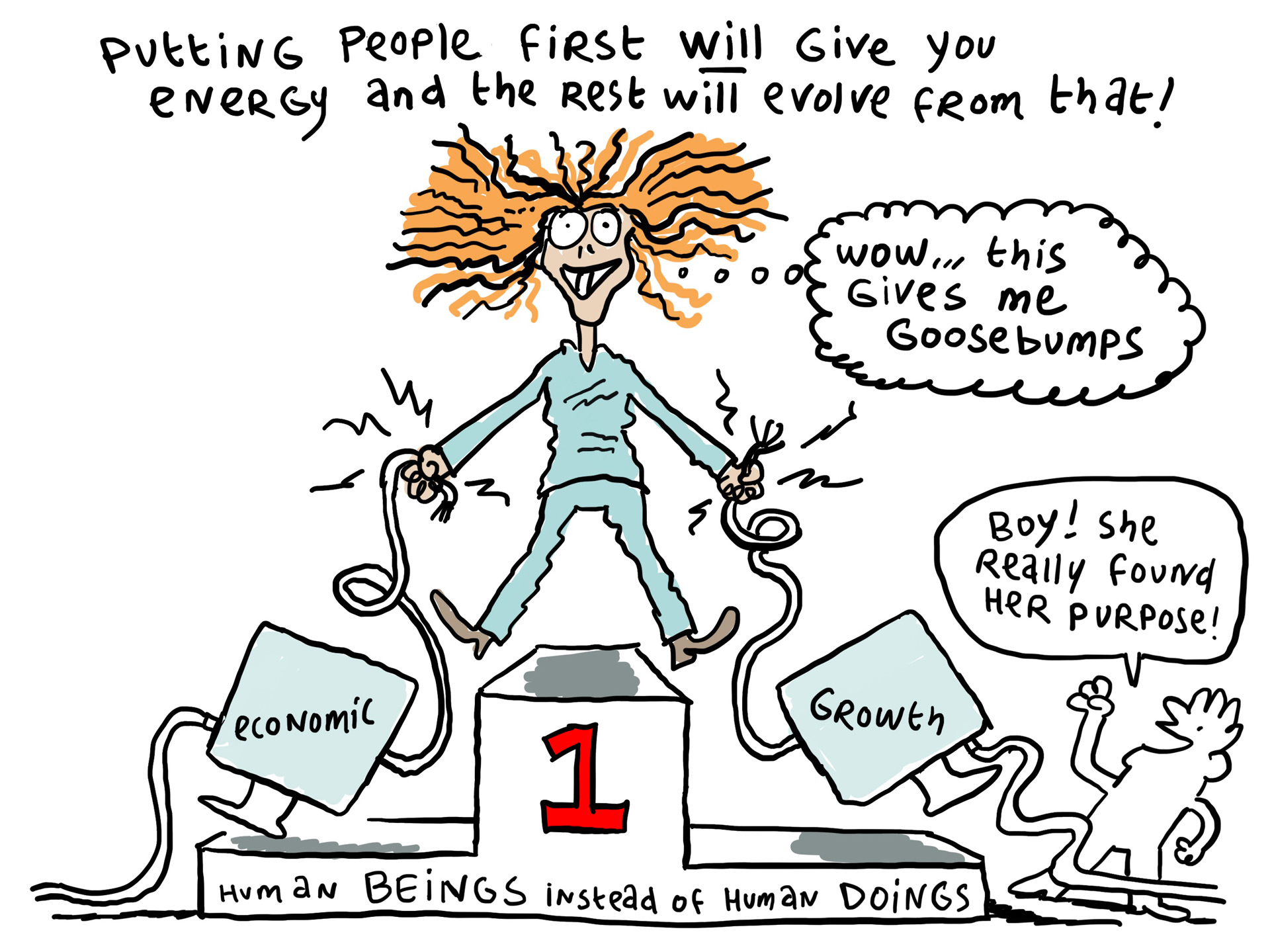Put people first: a people-centred approach as a driver of innovation

Put people first: a people-centred approach as a driver of innovation
Of course, technological developments are essential for growth, but real innovation can only be achieved if, as a company, you get your people completely on board with your vision of the future. That is why Ank De Wilde of Absolem advocated a more people-oriented way of doing business at the Flanders Make Symposium. Among other things, she underlined the importance of soft skills and a safe environment where people can express their feelings.
According to Ank De Wilde, co-founder and CEO of engineering company Absolem, technology is still far too often seen as the only real driver of growth and innovation. "But if you give two companies exactly the same technology, one will prosper more strongly than the other," she argued. So what makes the difference? "A people-centric approach. If, as a company, you put people first, you will always reap the benefits."
Among other things, De Wilde pointed out that artificial intelligence (AI), technology that is obviously having a huge impact, will still never match the power of the human brain. "You can ask AI to think outside the box and make unexpected connections, but you will always need human consciousness to take findings to the next level and safeguard the ethical nature of actions."
Focusing on people in a company may seem like a given at first glance, but it is anything but. To back that up, De Wilde cited an anecdote. "Someone told me recently at a networking event that he would much rather be COO than CEO, because managing and motivating people is much more complex than managing processes and projects. That's how it is, especially when a company grows and you start to lose the sense of one-to-one relationships."

Insights from social sciences
According to De Wilde, the seeds of many problems in education lie in business schools, where the focus is too much on things that are clearly measurable: numerical outcomes and financial results. 'Hard' science, in other words. But De Wilde feels that the terms 'hard' and 'soft' science are often misinterpreted.
"Hard science is often mistakenly seen as harder and based on true scientific principles, while soft science is often considered floaty. But compare, for example, a chemical experiment and a test around human behaviour. It is much easier to divide chemical mixtures into positive and negative control groups than to do something similar in humans. Every scientific discipline is difficult, if you want to practice it well."
Absolem's CEO calls for more attention to new insights from social scientists, for example around group dynamics. "If you dare to face the complexity of human relationships better, it will yield very concrete results for your company. Like filling the engine of your company with a new kind of fuel."
The importance of soft skills
If you do not implement people-centred policies, you will undoubtedly lose talent, De Wilde argued. She referred to research showing that 80% of company employees do not feel connected to their company. "Which is not to say they are tired of their job, they just don't click with their company anymore. These are people who will trade their job for the exact same work at another company, for pretty much the same pay. Because they are looking for a sense of purpose, a sense of purpose."
Even if they are not looking forward to another job, you can lose people in the workplace. "36.8% of Flemish workers suffer from stress or mental fatigue. 14% had some form of burnout in recent years. Surely these are shockingly high figures. And have no illusions, the best technology will not be able to save your company if your people are no longer able or willing to put their best foot forward."
But how can you connect with your people and keep them motivated on the road to innovation? In this regard, soft skills are crucial, the Absolem CEO suggested. "I prefer to call it 'human skills' myself: skills such as communication and empathy, creativity and adaptability, resilience and self-management. Not tangible hardware, but indispensable skills that cannot be taken over by machines. You also have to work hard at them, they are not easy to learn."
No human resources
De Wilde also stressed the importance of a safe environment where employees can express their feelings. Specifically, she advised leaders to organise regular in-depth check-ins, where it is essential not to try to force quick improvements or put people's problems in a different perspective. "Make sure people feel heard first and foremost. It is important to meet people where they are, not where we want them to be. Security is much more than the absence of threat, it is the presence of connection."
The CEO also pressed leaders not to see people as human resources that you can simply mold to fill a position that suits the company. "You cannot teach an elephant how to climb a tree. It is essential to first take a good look at people's personality and core talents, then assign them to positions that match them, and help them develop their competences further."
"Only then will they have the energy to stay motivated, learn quickly and achieve excellent results. If you deploy them in positions that don't suit them, they will not only submit inferior results, but moreover burn out over time."
Self-direction and participatory decision-making
To conclude, De Wilde stressed the need for more leadership in companies, and less hierarchy. "Hierarchical structures as we know them today silence people and lead to ego-driven decision-making. Discussions should be won with insights, not job titles."
That is why it is important to incorporate enough elements of self-direction, flexibility and participatory decision-making into your corporate culture. "If you trust people enough to hire them, also give them the confidence to do their work the way they want and make decisions based on their insights. This will give you access to a collective intellectual power and emotional intelligence that will enable you as a company to adapt to a rapidly changing economic reality."
This presentation was part of Flanders Make's Symposium, the annual event where (inter)national speakers present the technology trends that will shape the future of the industry. The 2022 edition focused on the path towards 'a sustainable, digital and competitive industry'.
